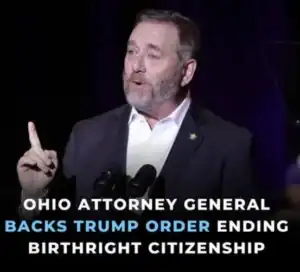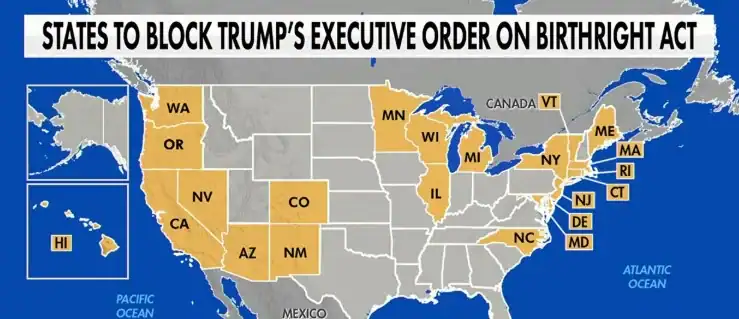By Ron Calhoun
The U.S. Supreme Court’s forthcoming ruling on President Donald Trump’s Executive Order 14160 could determine whether birthright citizenship remains protected under the Constitution, a decision with historic implications for African Americans, whose citizenship was secured after the Civil War.
From Dred Scott to the Fourteenth Amendment
The Fourteenth Amendment, ratified in 1868, was written to overturn the Supreme Court’s 1857 Dred Scott v. Sandford decision, which ruled that people of African descent were not U.S. citizens. By declaring that “all persons born or naturalized in the United States … are citizens,” the amendment established a clear constitutional guarantee of birthright citizenship, regardless of race or ancestry.
Reviving Dred Scott’s Shadow
Opponents argue that denying citizenship based on a parent’s immigration status revives the same legal principle from Dred Scott v. Sandford that the Fourteenth Amendment was meant to abolish.
New York Attorney General Letitia James, who joined a multistate lawsuit against the order, condemned it in a statement:
“Our Constitution is not open to reinterpretation by executive order or presidential decree. President Trump’s attempt to undermine the fundamental right to birthright citizenship is not just unconstitutional, it is profoundly dangerous.”, according to New York Attorney General Letitia James published in the (New York Post)
A coalition of Democratic attorneys general echoed this view, filing lawsuits that argue the executive order violates the Fourteenth Amendment’s Citizenship Clause. They warn that such a policy could create a “caste-based system,” imposing “second-class status” on children because of their parents’ background. Critics describe this as a return to the “reprehensible conception of hereditary birthright citizenship” espoused in Dred Scott. The amendment’s original intent was to reject any notion that citizenship could depend on race, lineage, or parental status.
Public Opinion and Racial Equity
Public opinion data show strong opposition to the order, especially among Black Americans. A Pew Research Center survey found that 74% of Black adults disapprove of the order, compared with 51% of white adults who approve. This division underscores the deep historical link between the struggle for racial equality and the establishment of birthright citizenship in the U.S. Constitution.
Civil rights advocates have also raised alarms. The National Asian Pacific American Bar Association argued that Executive Order 14160 fundamentally disrupts constitutional precedent, stating it “refuses to recognize the birthright citizenship of any child born in the United States to a mother who is lawfully present on a temporary basis … and a father who is neither a U.S. citizen nor a lawful permanent resident.”
In Houston, community leaders voiced similar concerns. Cesar Espinoza, director of immigrant-rights group FIEL, called the ruling “a devastating blow to our democracy.” Rep. Joaquin Castro, D-Texas, described the order as “cruel and un-American,” warning that it risks leaving children without citizenship. Harris County Attorney Christian D. Menefee criticized the outcome as a patchwork system that could leave constitutional protections varying by geography (Houston Chronicle).
Supporters Cite Constitutional Limits
Ohio Attorney General Dave Yost, joined by several Republican attorneys general, publicly defended the order. On X, formerly known as Twitter, Yost wrote:

“Birthright citizenship in the United States is limited by the Constitution to those persons who are ‘subject to the jurisdiction thereof.’ Those words must mean something, and they mean at least this: it doesn’t include those who are here illegally.” (Ohio Capital Journal)
America First Legal also backed the executive order, arguing that “no other branch of the U.S. government … has the authority to confer birthright citizenship.” The group said the order reinforces that the executive branch cannot grant citizenship to those illegally present in the country.
Supporters maintain that the Fourteenth Amendment’s Citizenship Clause does not automatically cover children born to undocumented immigrants or temporary visa holders, and they view the executive order as an effort to restore the Constitution’s original meaning, not expand rights.




